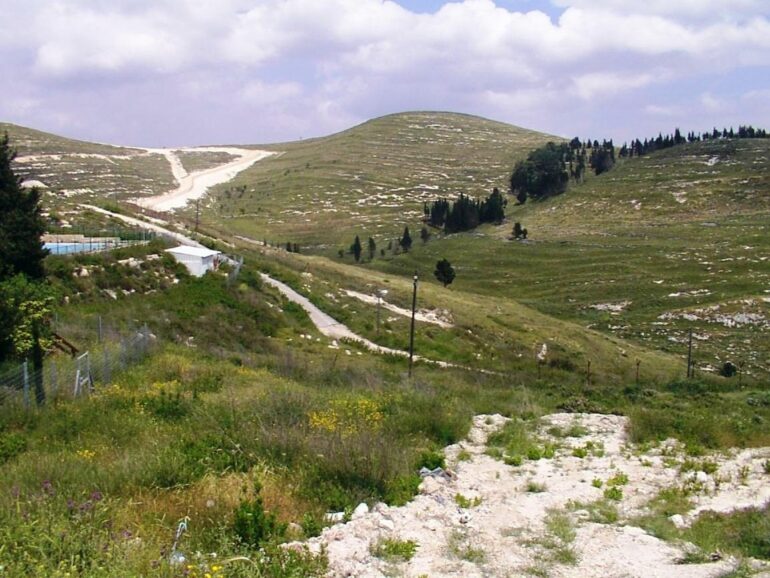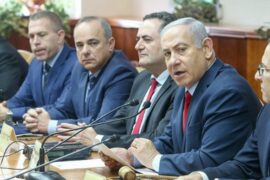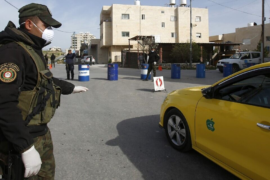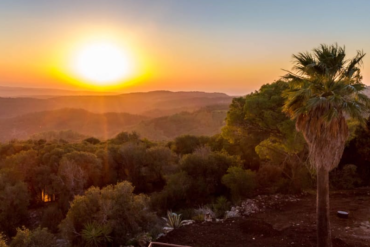On Monday night, the Knesset approved the second and third readings of a law cancelling the 2005 Disengagement in northern Samaria.
The legislation, which had been approved in its first reading a week ago and returned to the Knesset foreign affairs and defense committee, was approved by a majority of 31 to 18 lawmakers.
The law states that the prohibition on Israelis entering and remaining in northern Samaria, which was first imposed during the 2005 Disengagement from Gaza and northern Samaria, will be lifted.
In 2005, under pressure from United States President George W. Bush and Secretary of State Condoleezza Rice, Prime Minister Ariel Sharon (Likud) relinquished the Gaza region and destroyed all 21 of its Jewish communities.
In addition, Bush demanded that four small Jewish villages in northern Samaria also be destroyed in order to dispel the notion that Israel would surrender Gaza but retain the West Bank.
The four villages – Ganim, Kadim, Sa-Nur and Ḥomesh – were demolished and Israeli civilians were legally banned from visiting their remains despite the area remaining under full Israeli control.
For 17 years, West Bank Jewish organizers have struggled to return to Ḥomesh in an effort to reverse the Disengagement.
The new law passed Monday night does not apply to the territory of the Gaza region but will regulate the status of the students of the Ḥomesh Yeshiva and will allow the residents of Ḥomesh and Sa-Nur to reside there legally.
Member of Knesset Yuli Edelstein (Likud), who helped initiate the bill, welcomed the achievement.
“17 years of attempts, an uncompromising fight and a strong belief in the justice of our path came together in one moment when the Knesset plenum voted in favor of canceling the Disengagement Law,” he said.
“The State of Israel tonight began its recovery process from the disaster of the expulsion… This is a first and significant step towards a real repair and establishing Israel in the territories of the homeland that belong to her.”
Minister of National Missions Orit Struck (Religious Zionism) welcomed the approval of the bill, saying “This is a great day for the State of Israel. It’s not just that we are not going back to Ḥomesh, but we are changing our direction, we are moving forward – and not backward. We are blessed to have this moment!”
Opposition lawmaker Z’ev Elkin (National Unity) welcomed the new law, noting that he was one of the bill’s initial architects before defecting from the Likud.
“The most direct circle is related to the fact that I, together with Minister Orit Struck, were the first two members of Knesset who submitted this bill several terms ago,” he said.
“Now, the law is reaching the moment of approval. This is an important law that fixes the very great injustice of the Disengagement plan.”
Member of Knesset Limor Son Har-Melekh (Otzma Yehudit) called to immediately rebuild the four destroyed Jewish towns in northern Samaria and also issued a call to cancel the Disengagement from Gush Katif in order to eventually rebuild the Jewish communities in Gaza.
“[We have] infinite joy for a historical correction, but we must continue the mission until it is completed,” she said in her Knesset speech.
“Precisely now when there is an opportunity to correct injustices and lead significant moves, we must remember the following goals and challenges that lie before us. The racist and discriminatory law that prohibited Jews from entering northern Samaria will indeed be lifted today with God’s help, but we must make sure that it does not end there.”
“Our task now is to take care and make sure that the four towns that were evacuated by expulsion will be re-established in the near future… Our other mission is to return to Gush Katif communities and to rebuild them.”
Member of Knesset Har-Melekh is correct that the new law is only an important step in Israel formally acknowledging our mistake in allowing Bush to force the Disengagement policy on us. And she’s correct in declaring that continuing to rectifying our mistake will require Israel to ultimately retake Gaza and rebuild the Jewish communities that were demolished there. But in order to effectively succeed at this, Israel will need to offer the Palestinians a better life with us in a single democratic – yet deeply Jewish – state that grants everyone equal rights.
It’s important that Israel’s national camp understand that a return to the Gaza region would come with major responsibilities, especially in regards to alleviating the humanitarian crises currently plaguing its people.
Once back in Gaza, Israel should immediately work to decrease the population in the overcrowded strip through major financial benefits for Gazan Palestinians who wish to return to the parts of Israel their families fled in 1948. In these cities, Israel should build new luxury apartment buildings where units would be gifted to refugee families that choose to take advantage of the initiative. This would serve as both a means of addressing the Palestinian refugee issue and redistributing wealth.
Embarking on such a course, which would meet the Jewish need for a return to Gaza and the rebuilding of Gush Katif while offering Gazan Palestinians inclusion, wealth redistribution and an experimental answer to the refugee question, could go far in showing that both peoples can mutually benefit from the cancelation of Bush’s Disengagement policy.
Because the power dynamics in the conflict overwhelmingly favor Israel, it is our responsibility to take the first steps toward reconciliation. The full liberation of Gaza and its people would be a bold and productive way to communicate our commitment to rectifying past injustices and finding new approaches to ending our conflict with the Palestinians, while realizing Jewish aspirations for a return to Gaza.





